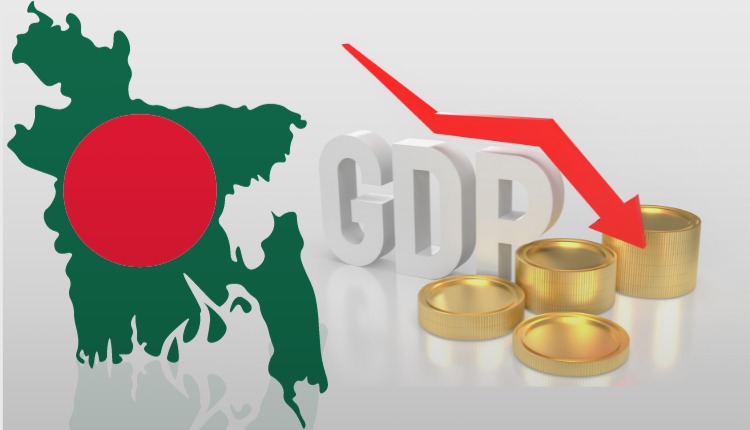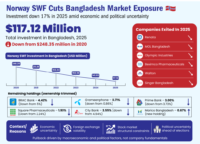In its latest Asian Development Outlook for December 2023, the Asian Development Bank (ADB) has revised Bangladesh’s economic growth forecast for the current fiscal year downward to 6.2%, marking a 0.3 percentage point decrease from its previous projection in September. The Manila-based lender cites several factors contributing to this adjustment, including a slowdown in the economy, uncertainties surrounding the January election, moderate growth in exports and manufacturing, power and energy shortages, and persistently high inflation.
Reportedly, the ADB highlights the impact of external challenges such as economic slowdowns in major export markets, as well as internal factors like inflation and energy shortages. The revised growth projection also takes into account uncertainties related to the upcoming January elections, with potential positive outcomes identified as upside risks.
This adjustment aligns with similar moves by other financial institutions, as both the International Monetary Fund (IMF) and the World Bank had also trimmed their growth forecasts for Bangladesh earlier this year. As reported, the IMF revised its projection to 6%, while the World Bank lowered it to 5.6%, emphasizing challenges related to high inflation and external-payment issues.
Reportedly, despite these downward revisions from international financial institutions, the Bangladesh government maintains a revised target of 6.5% GDP growth for the current fiscal year, down from the initial target of 7.5%. This adjustment acknowledges both internal and external challenges facing the country. The ADB’s report also provides insights into the broader South Asian outlook, indicating a revised growth forecast for the region at 5.7% in 2023, primarily driven by higher-than-expected growth in India. Despite the downward revisions for Bangladesh and the Maldives, the overall growth forecast for the subregion in 2024 remains at 6%.
Moreover, the report highlights a revision in the inflation forecast for South Asia to 6.7% for the fiscal year 2024. The ADB anticipates inflation easing in the coming months due to contractionary monetary policies, market-based exchange rate measures, lower global commodity prices, and a positive outlook for crops.
While Bangladesh faces economic headwinds leading to revised growth projections, the ADB acknowledges positive indicators in the broader South Asian region, emphasizing the resilience of domestic demand, strong remittances, and recovering tourism.
For more updates, be with Markedium.










































Leave a comment